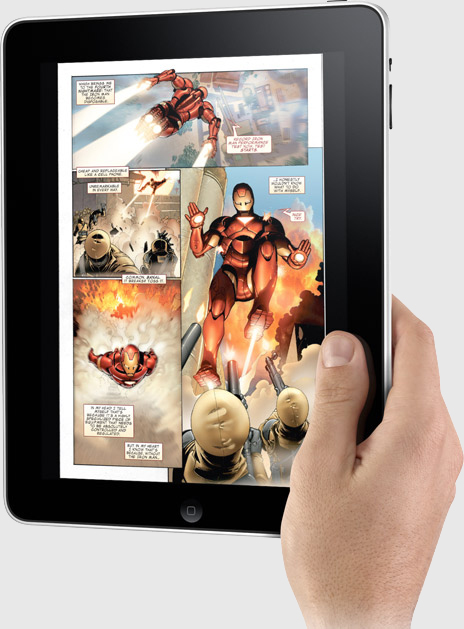Today,
pretty much everything we own has a screen on it. Our phones, our game systems,
our cars – it’s hard to find something that doesn’t connect to the internet.
With the rise of the digital age, and the innovations that followed, the idea
of instant purchases was an exciting one. Napster changed the way people bought
music, Amazon introduced us to the ebook, Netflix gave us movies and TV from
our computer, and iTunes capitalized on all of the above. What these systems
have in common is instant digital entertainment. The days of worrying about a
scratched disc or a torn page were behind us. Hard drive get wiped? Most of
these companies allow multiple downloads after purchase. To many, it’s hard to
find a flaw in all this. Is there a downside? Maybe.
I
suppose I’ll start with the benefits. Digital downloads are basically indestructible.
Ever buy a comic, bring it home, put it on your bed, and your dog jumps onto
it? If not, I’m sure at some point one of your books got destroyed one way or
another. My garage flooded once, and hundreds of my comics were destroyed. After
softly weeping in the dark for what seemed like days, I went to the shop and
bought a plastic bin for those that survived – and that was the end of it. Not
once did I wish they were all on my hard drive instead of tucked away in flimsy
boxes, though I did understand the appeal.
It’s
also an instant service. If getting into your car and driving three blocks to
the comic store sounds like an odyssey you simply don’t have time for, you now
have the ability to order and read comics straight from your couch. I think
this is the most appealing part of this new technology. If it isn’t the trip
itself that bothers you, arriving at the comic store and realizing what you
need is sold out can be infuriating. The good thing about eComics is there’s an
infinite supply of them. As mentioned above, most eComics can be re-downloaded after purchase. In terms of ease and durability, eComics win
hands down.
But
what is one of the main draws of collecting comics? Just that, collecting comics. People don’t collect
files on their computer or iPad, and if you know someone who does, tell them to
stop because that is really stupid. Take one step into the San Diego Comic Con and
you’ll notice that nearly half of the floor is covered in comic vendors,
peddling issues ranging from modern day books to antique collectables. If in
twenty years all of that is replaced with a Wi-Fi hotspot, I may just lose it. Though
this may be an exaggeration, it is not too far from the truth. Disc based
game demos have fallen to the wayside, replaced by unique codes and download
kiosks. Sure, demos don’t have nearly the historical and cultural impact as
comic books, but the precedent is there.
History
has shown that consumers want their product tangible, at least when it comes to
video games. The PSP GO didn’t even allow you to pop in cartridges; it was played
entirely through downloaded games. In terms of financial success for Sony, it
was a dud. Books, however, are another story. Amazon and its Kindle have
essentially killed the bookstore. Borders just went under, and if Barnes &
Noble hadn’t entered the eBook market when it did, they would have been eaten
as well. And let’s not forget about movies. Netflix has made watching movies
incredibly convenient. Video stores are closing all across the country because
of it, and now most Blu-Rays come packaged with a code to download a digital
copy of the movie to use with your device. This is similar to what DC is
currently doing with their comics. Are they trying to slowly wean people off of
hard copies? Probably, but people are still buying the real thing, so they can’t
stop yet. Oh, and music, but that’s hardly worth bringing up. No one has bought
a CD in over ten years.
It’s
hard to say what will happen to comic books in the future. Do I think comics will
one day be entirely digital copies? Yes. Do I think it will happen soon? No.
Comic sales are on the rise, and their collectors put a lot of value into the
hard copies, arguably more so than any other mainstream medium. Movies are
digital, books are digital, and I’d wager some young children don’t even know
what a CD is. It’s entertainment's last bastion of tangibility. Hopefully, it can
stay that way for a little longer.